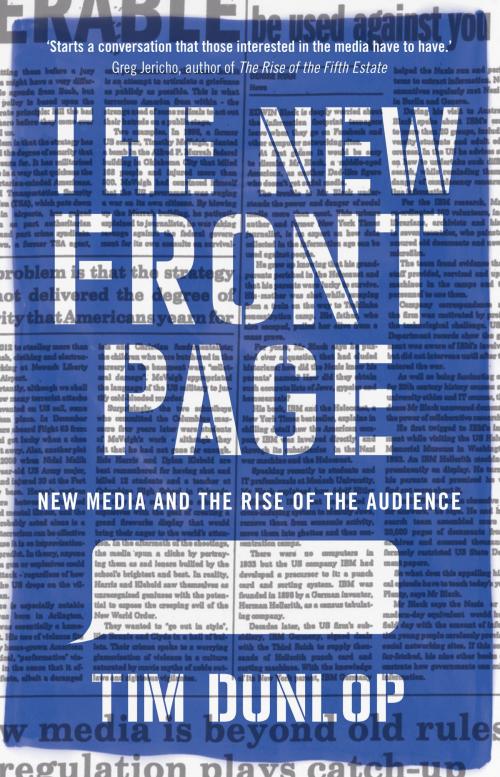The New Front Page
new media and the rise of the audience
Nonfiction, Reference & Language, Language Arts, Journalism, Social & Cultural Studies, Social Science, Business & Finance| Author: | Tim Dunlop | ISBN: | 9781922072665 |
| Publisher: | Scribe Publications Pty Ltd | Publication: | August 26, 2013 |
| Imprint: | Scribe | Language: | English |
| Author: | Tim Dunlop |
| ISBN: | 9781922072665 |
| Publisher: | Scribe Publications Pty Ltd |
| Publication: | August 26, 2013 |
| Imprint: | Scribe |
| Language: | English |
A provocative, timely account of the changing face of journalism from a pioneer of the new-media revolution
For a long time, media organisations have controlled the news, treating their audiences as products for advertisers. Yet as journalism has moved online and behind paywalls, the public is demanding more say in how the news is created. They are using blogs, Twitter, and Facebook to share stories, and selecting their sources to create their own ‘front page’.
In this lively, biting critique, media commentator Tim Dunlop explores the rise of the audience, and how unprepared the mainstream media has been for this changing balance of power. Drawing on his experiences as a prominent political blogger, he argues that the future of meaningful journalism — the sort we need in order to be informed citizens — will increasingly rely on journalists and editors taking the audience into their confidence and working with them, rather than against them.
The New Front Page is a passionate plea on behalf of those tired of being talked down to by the fourth estate. Perceptive and illuminating, it asks audiences and media to work together to hold the powerful to account, and to produce the sort of news and analysis that enriches public debate.
A provocative, timely account of the changing face of journalism from a pioneer of the new-media revolution
For a long time, media organisations have controlled the news, treating their audiences as products for advertisers. Yet as journalism has moved online and behind paywalls, the public is demanding more say in how the news is created. They are using blogs, Twitter, and Facebook to share stories, and selecting their sources to create their own ‘front page’.
In this lively, biting critique, media commentator Tim Dunlop explores the rise of the audience, and how unprepared the mainstream media has been for this changing balance of power. Drawing on his experiences as a prominent political blogger, he argues that the future of meaningful journalism — the sort we need in order to be informed citizens — will increasingly rely on journalists and editors taking the audience into their confidence and working with them, rather than against them.
The New Front Page is a passionate plea on behalf of those tired of being talked down to by the fourth estate. Perceptive and illuminating, it asks audiences and media to work together to hold the powerful to account, and to produce the sort of news and analysis that enriches public debate.















